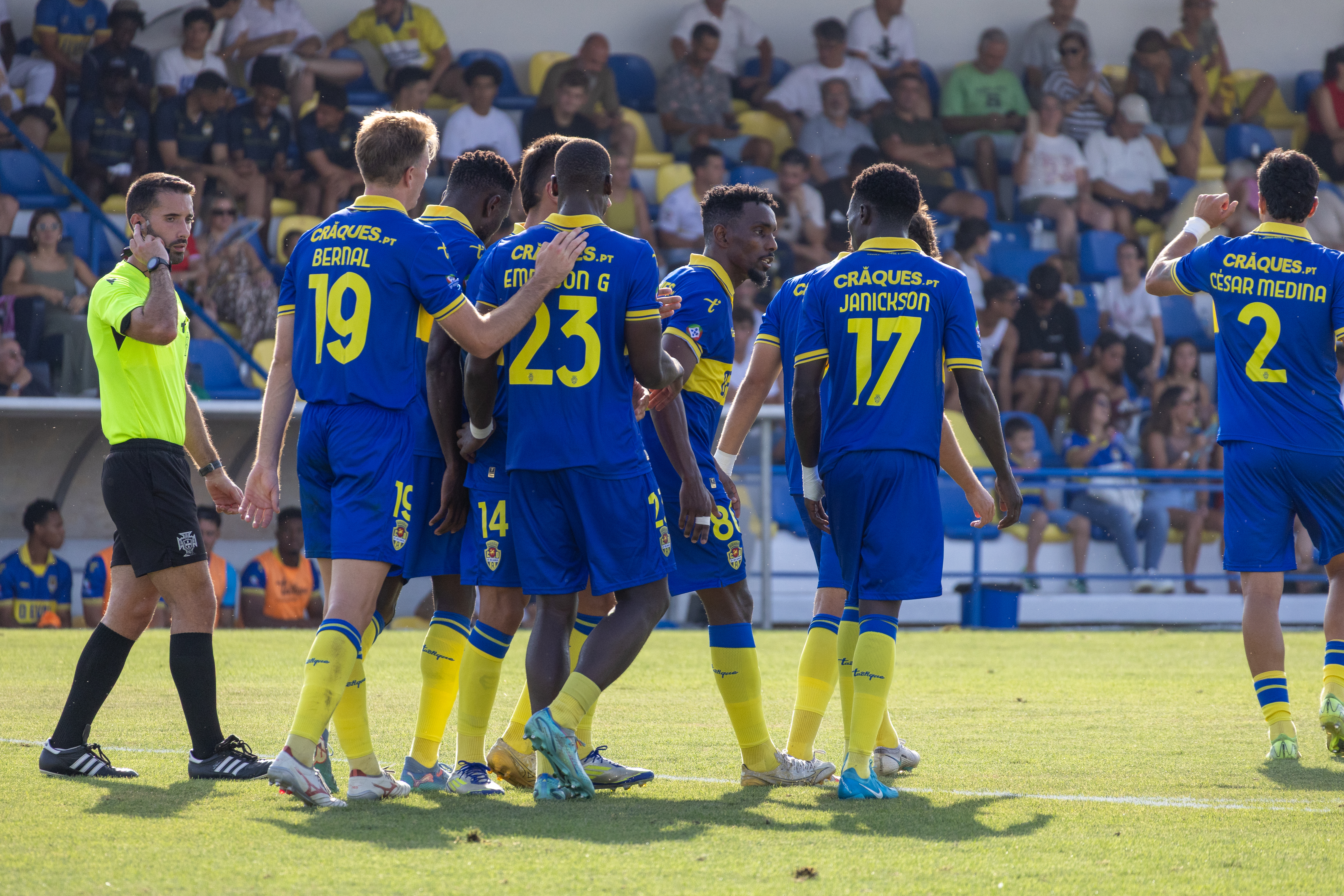The CLUB
On August 15, 1947, Elvas Clube Alentejano de Desportos was officially established. The initiative to merge the local clubs originated from the Elvas City Council, which, following a preliminary meeting with the presidents of the clubs, sent them a letter in July of the same year.
On July 23, the general assemblies of Sport Lisboa e Elvas and Sporting Club Elvense unanimously approved the creation of a single club in the city, motivated by the financial difficulties faced by both organizations. Messrs. André Gonçalves and José de Melo e Sousa, then leaders of the respective clubs, assumed the administrative commission responsible for the establishment of the new entity, initially named Grupo Desportivo de Elvas.
The Clube de Futebol Os Elvenses also held a general assembly on July 25 to discuss the merger proposal, which, after extensive debate, was rejected by the majority vote.
With the decision ratified by the first two clubs, the social bodies of the new club were constituted. Although initially named Grupo Desportivo de Elvas, it was decided to adopt the name “O Elvas” to represent the Alentejo region and encompass various sporting modalities. The official colors became blue and gold, inspired by the Argentine club Boca Juniors. The chosen emblem featured peacock blue and golden yellow, complemented by the coat of arms of the city of Elvas.
At the first general assembly of the club, held at the Municipal Cine-Theater of Elvas, the statutes were approved and the social bodies were elected with enthusiastic applause from those present.
The team became professional, with players receiving a monthly salary of 1,200 escudos, made possible through a fundraising campaign that collected 300 contos under the new administration’s management.
First Official Matches of O Elvas and the New Competitive System
On September 7, 1947, O Elvas Clube Alentejano de Desportos played its first official match, facing Cacereño, a team that had finished sixth in Group 7 of the Spanish Third Division. O Elvas secured a decisive victory, with a final score of 8-3.
The second match took place on September 24, as part of the São Mateus Fair celebrations. On this occasion, O Elvas hosted Sevilla, which had finished sixth in the Spanish First Division in the 1946-1947 season and would conclude the 1947-1948 season in fifth place. The game was closely contested, with Sevilla emerging victorious by 2-1.
These initial encounters brought O Elvas to prominence in both the Portuguese and Spanish sports press, raising expectations about the club’s future potential. Concurrently, O Elvas sought to arrange a match against Valencia, the reigning Spanish champions, who were on a tour of Portugal; however, Valencia chose to face Futebol Clube do Porto instead.
The 1947-1948 season introduced significant changes to the structure of Portuguese football competitions. The National First Division Championship remained composed of 14 teams; however, clubs from the First and Second Divisions ceased participation in district championships, with the exception of teams from the Lisbon and Porto regions, which continued to compete in their respective regional championships.
The National Second Division was reorganized into four groups of eight teams each. The winners of each group contested a final phase to determine which team would be promoted to the First Division. Meanwhile, the district championships became qualifiers for a newly established National Third Division, which was played in a knockout format, determining promotion to the Second Division.
On June 1, the final matchday of the championship was held, with Vitória de Setúbal defeating O Elvas 2-0.
The 1947-1948 season proved to be of great significance for O Elvas, marked by a promising start that quickly revealed the team’s potential. Despite the challenges and difficulties encountered throughout the championship, O Elvas achieved notable victories against prominent opponents such as Benfica and Sporting de Braga. The season was also characterized by a series of ups and downs, culminating in an impressive rout of Académica. These experiences strengthened the club’s determination and competitive spirit, preparing it for the future challenges of Portuguese football.
The 16th round was a balanced game, with our team winning 5-3 against Atlético. In the next round, O Elvas visited Sporting and lost 2-1.
In the 18th round, the blue and gold club demonstrated the grit and determination that had been lacking in previous games, winning 4-1 against Estoril. In the following two rounds, O Elvas failed to score any points, losing to Vitória de Guimarães 7-1 and Boavista 2-0.
On 21 April 1948, O Elvas faced Olhanense at home in the 21st round, winning 3-1 against the Algarve club. In the next game, O Elvas travelled to Braga to face Sporting de Braga and lost 4-1.
In the next three rounds, O Elvas defeated Belenenses 2-1, Benfica 2-1, and thrashed Académica at home 12-1.
On 1 June, the last round of the championship took place, with Vitória de Setúbal defeating our team 2-0.
The 1947-1948 season was of great importance for O Elvas, with a promising start that quickly demonstrated the team’s potential. Despite facing challenges and difficult moments throughout the championship, O Elvas achieved notable victories against major teams like Benfica and Sporting de Braga. The season was marked by a series of highs and lows, culminating in an impressive thrashing of Académica. These experiences reinforced the club’s determination and competitive spirit, preparing it for future challenges in Portuguese football.
Portuguese Cup 1948
In March 1948, the Portuguese Cup commenced, introducing an innovative format that included knockout rounds featuring clubs from the 2nd and 3rd divisions. Only in the first round did the teams from the 1st division enter the competition. O Elvas faced Desportivo de Faro in the round of 32, securing a commanding 13-0 victory and advancing to the next stage. In the round of 16, the blue and gold club was matched against Benfica, suffering a 6-1 defeat.
1948/1949 Season
On September 22, 1948, O Elvas played against Futebol Clube do Porto in the first round, concluding the match with a 3-1 loss.

